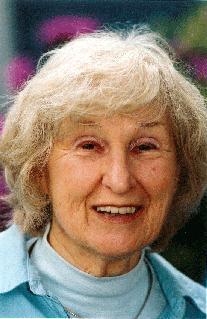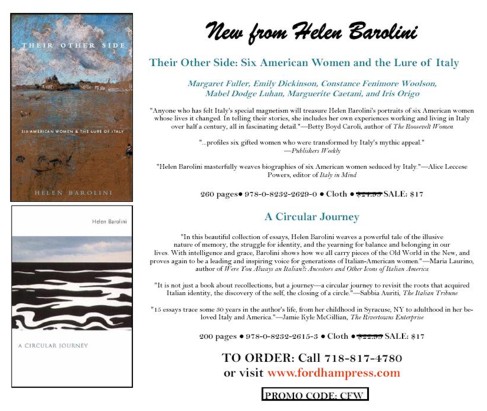

ALBO D’ORO DEL PREMIO
1993 - Nigeria: Wole
Sojnka, La morte e il cavaliere del
Re, Milano, Jaca book, 1993.
1994 - Finlandia: Arto
Paasilinna, L'anno della lepre,
Milano, Iperborea, 1994.
1995 - Brasile: Rubem
Fonseca, Vaste emozioni e pensieri imperfetti, Roma, Biblioteca del
vascello, 1994.
1996 - Austria: Marianne
Gruber, Calma di vento,
[Magreglio], Shakespeare e C., [1995]
1997 - Slovenia: Alojz
Rebula, Nel vento della Sibilla,
[Trieste], Editoriale stampa triestina,
1992
PREMIO
SPECIALE PER
Ciril
1998 - Russia: Ljudmila Ulickaja,
Sonja,,
[Roma], Edizioni E/O, 1997
PREMIO
SPECIALE PER
Jurij
1999 – Paesi del Nord Europa:
Einar Mar Gudmundsson Angeli dell’Universo, Milano, Iperborea,
1997 – ex aequo Kerstin Ekman, Il buio scese sull’acqua, Milano,
Il Saggiatore, 1998
PREMIO
SPECIALE PER
Claudio
2000 – Egitto: Baha Taher,
Zia Safia e il monastero, Roma, Jouvence, 1993
PREMIO
SPECIALE PER
Antonello
2001 – Canada: Anne
Michaels, In fuga, Firenze, Giunti, 1998
PREMIO SPECIALE PER
Will
2002 – Grecia:
ex – aequo
- Alki Zei,
La fidanzata di Achille,MIlano ,Crocetti, 1998
ex aequo,
Pavlos Matesis,
Madre di cane, Milano, Crocetti, 1998
2003 – Irlanda :
Jennifer Johnston, Ombre sulla nostra pelle,Roma, Fazi Editore,
2002
PREMIO SPECIALE PER
Tommaso Padoa-Schioppa “Europa,forza gentile” Il Mulino 2002
2004 – Messico :
Carlos Fuentes,Gli anni con Laura Diaz, Milano,Il Saggiatore, 2001
PREMIO SPECIALE PER
Carlos Montemayor, La danza del serpente, Lecce,Manni Editore,
2003
2005 – Romania: Mircea Cartarescu,
Nostalgia, Roma, Voland , 2004
.
PREMIO SPECIALE PER
Ana Blandiana,
Un tempo gli alberi avevano occhi,Roma,Donzelli
Editori,2005.
PREMIO SPECIALE PER
Marco Cugno, per l’opera omnia
2006 – Ungheria: Lajos Grendel, Le campane di Einstein,
Milano, Casa editrice
Anfora,2004
PREMIO SPECIALE PER
PREMIO SPECIALE PER
2007 – Portogallo: 2007 – Portogallo: Mario de
Carvalho,
Passeggia un dio nella
brezza della sera,
Torino, Instar Libri,
2006
PREMIO SPECIALE PER
PREMIO SPECIALE PER
PREMIO
SPECIALE PER
PREMIO SPECIALE PER
Giuseppe Papagno
2008
- Letteratura Italoamericana
PREMIO LETTERARIO GIUSEPPE ACERBI -
Narrativa per
conoscere ed
avvicinare i popoli: Helen Barolini,
Umbertina, Roma,
Avagliano editore, 2006
PREMIO SPECIALE PER
PREMIO SPECIALE PER
PREMIO SPECIALE PER
PREMIO SPECIALE
PER GLI STUDI E
LETTERATURA ITALOAMERICANA:
Robert Viscusi
PREMIO
LETTERARIO GIUSEPPE ACERBI
Narrativa per conoscere ed avvicinare i popoli
xvI° edizione
LETTERATURA ITALO-AMERICANA
Il Premio
Letterario Giuseppe Acerbi si propone di realizzare i seguenti obiettivi
1 – educare i
giovani alla lettura, sviluppandone le capacità interpretative e il senso
critico ed estetico;
2 – abituare
al confronto senza pregiudizi e all’accettazione di realtà culturali, sociali ed
economiche diverse, promovendo così la conoscenza e l’integrazione tra i popoli;
3 –
contribuire alla diffusione di produzioni letterarie ed autori poco conosciuti
in Italia
GIUSEPPE ACERBI
*Giuseppe
Acerbi, personaggio poliedrico, fu scrittore, viaggiatore, esploratore,
collezionista, con un atteggiamento tipicamente illuminista. Nato a Castel
Goffredo il 3 maggio 1773, è il primo, con lo svedese Skjoldebrand, a
raggiungere via terra Capo Nord, attraversando
ALBO D’ORO DEL PREMIO
1993 -
Nigeria: Wole Sojnka, La morte
e il cavaliere del Re, Milano, Jaca book, 1993.
1994
- Finlandia: Arto Paasilinna,
L'anno della lepre, Milano,
Iperborea, 1994.
1995
- Brasile: Rubem Fonseca, Vaste emozioni e pensieri imperfetti,
Roma, Il vascello, 1994.
1996
- Austria: Marianne Gruber,
Calma di vento, [Magreglio], Shakespeare e C., [1995]
1997
- Slovenia: Alojz Rebula,
Nel vento della Sibilla, [Trieste], Editoriale stampa triestina,
1992
1998 - Russia: Ljudmila
Ulickaja, Sonja,,
[Roma], Edizioni E/O, 1997
1999 – Paesi del Nord Europa:
Einar Mar Gudmundsson Angeli dell’Universo, Milano, Iperborea,
1997
Kerstin Ekman, Il buio scese sull’acqua, Milano, Il
Saggiatore, 1998
2000 – Egitto: Baha Taher,
Zia Safia e il monastero, Roma, Jouvence, 1999
2001
– Canada: Anne Michaels, In fuga, Firenze, Giunti, 1998
2002 – Grecia:
ex – aequo
- Alki Zei,
La fidanzata di Achille,MIlano ,Crocetti, 1998
Pavlos Matesis,
Madre di cane, Milano, Crocetti, 1998
2003
– Irlanda :
Jennifer Johnston, Ombre sulla nostra pelle,Roma, Fazi Editore, 2002
2004 –
Messico : Carlos
Fuentes,Gli anni con Laura Diaz, Milano,Il Saggiatore, 2001
2005 – Romania:
Mircea Cartarescu, Nostalgia,
Roma, Voland , 2004 .
2006 – Ungheria: Lajos Grendel, Le campane di Einstein,
Milano, Casa editrice
Anfora,200
2007 – Portogallo: Mario de Carvalho,
Passeggia un dio nella brezza della sera,
To, Instar
Libri, 2006
2008
- Letteratura Italoamericana
PREMIO LETTERARIO
GIUSEPPE ACERBI -
Narrativa per conoscere ed
avvicinare i popoli: Helen Barolini,
Umbertina, Roma,
Avagliano
editore, 2006
PREMIO SPECIALE PER
PREMIO SPECIALE PER
PREMIO SPECIALE PER
PREMIO SPECIALE PER GLI STUDI E
LETTERATURA ITALOAMERICANA:
Robert Viscusi
PREMI SPECIALI PER
1999 -
Claudio Magris
per l’opera omnia
2000 - Antonello Zunino
per l’opera L’insostenibile pesantezza dell’EURO
2001-
Will Kymlicka,
La cittadinanza multiculturale
2002
- Luigi De Anna, Lauri Lindgren, Eero
Saharaneimo per gli studi che hanno
promosso la
conoscenza di Giuseppe Acerbi nel mondo
2003-
Tommaso Padoa-Schioppa “Europa,forza gentile”
2006 –
Jeremy Rifkin
“Il
sogno europeo”
2007 –
Eduardo Lourenço “
Il tempo dell’Europa”
Giuseppe Papagno
“ I portoghesi d’oro”
2008 – Gian Antonio Stella
“L’orda. Quando gli albanesi
eravamo noi”
MODALITA' DI VOTAZIONE
e COSTITUZIONE DELLE GIURIE
Dall'edizione
1995 il Comitato organizzatore ha affiancato alla giuria scientifica, composta
da 15 tra studiosi , professori universitari e giornalisti, una giuria popolare
formata da 300 lettori utenti delle biblioteche del territorio nazionale.
RIVISTA “Quaderni del Premio
Letterario Giuseppe Acerbi”
A conclusione
dell’anno di studi dedicato alla letteratura Italo-Americana, l’Associazione
Acerbi intende pubblicare il n°9 della rivista
“Quaderni del Premio Acerbi.
PROGRAMMA
DELLE MANIFESTAZIONI
23 FEBBRAIO 2008
*
Pomeriggio letterario:
presentazione delle opere e degli scrittori candidati, a cura di Giuseppe
Massara – Univ. di Roma, Ernesto Milani – Associazione Mantovani nel Mondo –
Giorgio Colombo – Direttore rivista “Quaderni del Premio Acerbi-Letteratura
Italo-Americana”. Coordina l’incontro Niccolò D’Aquino – giornalista Rizzoli
Corriere della Sera
Reading: Monica Palma -
attrice
11-19
GIUGNO
2008
·
Viaggio turistico
culturale in Finlandia “Sulle orme di Acerbi:
da Oulu a North Cape”
·
Incontro di presentazione del Premio
all’Ambasciata d’Italia a Helsinki. Incontro con le autorità.
28 GIUGNO 2008
·
Serata di votazione
e proclamazione del Vincitore del Premio Letterario Giuseppe Acerbi
·
Cena tipica
20
SETTEMBRE
1 OTTOBRE
*
Viaggio turistico-culturale negli Stati Uniti “Le grandi città dell’Est”
*
Appuntamenti culturali a Washington, Boston e New York
5,6,7, 8 NOVEMBRE 2008:
*
Incontri dell’autore /i vincitore/i nelle scuole e nelle sezioni di
giuria
*
Cena con gli autori
*
Presentazione in anteprima degli autori vincitori a Mantova o Desenzano
*
Serata di consegna dei Premi
*
Presentazione del n° 9 della rivista “Quaderni del Premio Acerbi”
– anno 2008 – Letteratura
Italo-Americana
GIUSEPPE ACERBI LITERAY PRIZE
CASTEL GOFFREDO
The town administration of Castel Goffredo (
The Prize has the patronage of the
premiership of the Council of Ministers, of the Minister of Foreign Affairs, of
the Ministry of Public Education, of the Ministry of Culture and Environment of
Lombardy and of the
And it is one of the few literary Italian
Prizes which has been dedicated to foreign literature.
The winners of the previous editions were:
1993 -
1994 –
1995 –
1996 –
1997 –
1998 –
1999: Northern Countries: Einar Mar
Gudmundson, The Angels of the universe,
Ex aequo
Kerstin Ekman,
Darkness descended on the water;
2000 –
2001 – Canada, Anne
Michaels, Fugitive Pieces,
Firenze, Giunti, 2000
2002 –
2003 -
Special Prize for New Literature: Joseph
O’Connor, Desperados
2004 –
2005 –
Special Prize for poetry: Ana Blandiana,
Un tempo gli alberi avevano occhi
Special Prize for translation: Marco Cugno
2006
– Ungheria: Lajos Grendel, Le campane di Einstein,
Special
Prize for poetry:
Krisztina Toth
Special Prize for translation:
Tomaso kemeny
2007
– Portogallo: Mario de Carvalho,
Passeggia un dio nella brezza della sera
Special Prize for poetry:
Ana Luisa Amaral
Special Prize for feminine Literature:
Lidia Jorge
Special Prize for
essay writing: Eduardo Lourenço
Special Prize for italian essay writing about
2008
– Letteratura italoamericana: Helen
Barolini, Umbertina, Roma, Avagliano
editore, 2006
Special Prize for poetry: Joseph Tusiani
Special Prize for feminine Literature: Louise DeSalvo
Special prize for career: Giose Rimanelli
Special Prize for studies and promotion of
italoamerican literature: Robert Viscusi
Essay writing
Moreover the prize has a special section
which has been dedicated to essay-writing. In 1998 the prize was given to Jurij
Karjakin Dostoevskij and the Apocalypse; in 1999 it was given to Claudio
Magris for his essay Utopia and disenchantment, for his studies
concerning European literature and in 2000 it was given to Antonello Zunino for
his studies concerning the introduction of the Euro.
In 2001 it was given to Will Kymlicka for his
work Multicultural Citizenship. In 2002 it was given to three important
professors from
In 2004 the winner was Jeremy Rifkin for the
work The European Dream. In 2007
the essay writing prize was given to Eduardo Laurenço and Giuseppe Papagno.
The winner of 2008 edition is Gian Antonio Stella for the work
L’orda – When we where
the Albanians
Voting System
The books are read and chosen by two boards:
a scientific and a popular board.
The scientific board consists of 11 people
among which are journalists, writers and university lecturers. A popular board
consists of more than 250 readers from the libraries of the
Saturday February 23rd 2008
An
introductory symposium regarding the cultural and historical characteristics of
Italian-American Literature took place in Castel Goffredo’s Town Hall.
Afterwards the novels in competition will be given to the 250 readers of the
numerous libraries who from the public board.
Following
this, the schools in the area will participate in courses regarding readings and
literary critic.
Saturday 28th June 2008
The books will be voted upon
and the winning novel of the XVI th edition of
the Giuseppe Acerbi Literary Prize will be announced at the restaurant
“Villa Europa”
November 5th – 8th 2008
Arrival
of the winning authors in Castel Goffredo. These days will be dedicated
presenting the authors to the students in the area
as well as the public.
Saturday, 8 th November 2008
Awards Ceremony in Castel Goffredo’s Town Hall .
PUBLICATION:
Review «Quaderni» of the Giuseppe Acerbi Literary Prize (9th
volume), XVIth edition, dedicated to Italianamerican literature, consisting of
the articles of teachers, jornalist and experts in
Italianamerican history, literature and culture.
GIUSEPPE ACERBI: A BRIEF BIOGRAPHY
He was born in Castel Goffredo (
In 1802 he published in
During his travels he met very important
European people, such as Madame de Stäel, Goethe, Malthus, Klopstock. He was
responsible for the legation of the Italian “Cisalpina” Republic in
He came back to
He stayed in
When he came back to